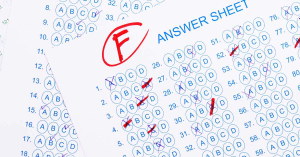The American College Testing (ACT) is a standardized test used for college admissions in the United States. This article provides a comprehensive overview of the ACT exam pattern, detailed syllabus, essential preparation tips, and resources for effective study.
Overview of ACT Exam
Purpose of ACT: The ACT is designed to measure high school students’ readiness for college and provide colleges with a common data point that can be used to compare all applicants.
Importance of Understanding the Exam Pattern: Understanding the ACT exam pattern helps candidates plan their preparation strategically, manage time efficiently during the test, and enhance their chances of securing a high score.
ACT Exam Pattern
Exam Mode:
- The ACT is conducted in paper-based format.
Subjects:
- The exam comprises four main sections: English, Mathematics, Reading, and Science. There is also an optional Writing section.
Type of Questions:
- The question paper includes Multiple Choice Questions (MCQs).
Medium of Exam:
- The exam is conducted in English.
Duration of Exam:
- The total duration of the exam is 2 hours 55 minutes without the Writing section and 3 hours 35 minutes with the Writing section.
Total Marks:
- Each section is scored out of 36, making the composite score for ACT 36. The Writing section is scored separately.
Marking Scheme:
- There is no negative marking for incorrect answers.
ACT Detailed Question Paper Design
Example of ACT Question Distribution:
| Section | Number of Questions | Duration (minutes) | Total Marks |
|---|---|---|---|
| English | 75 | 45 | 36 |
| Mathematics | 60 | 60 | 36 |
| Reading | 40 | 35 | 36 |
| Science | 40 | 35 | 36 |
| Total | 215 | 175 | 36 |
| Writing (optional) | 1 | 40 | Separate |
Detailed ACT Syllabus
English:
- Usage/Mechanics
- Punctuation
- Grammar and Usage
- Sentence Structure
- Rhetorical Skills
- Strategy
- Organization
- Style
Mathematics:
- Pre-Algebra
- Elementary Algebra
- Intermediate Algebra
- Coordinate Geometry
- Plane Geometry
- Trigonometry
Reading:
- Reading Comprehension
- Prose Fiction
- Social Science
- Humanities
- Natural Science
Science:
- Interpretation, Analysis, Evaluation, Reasoning, and Problem Solving
- Biology
- Chemistry
- Physics
- Earth/Space Sciences
Writing (optional):
- Writing an essay based on a given prompt and demonstrating effective writing skills.
Preparation Strategy
Understanding the Exam Pattern:
- Familiarize yourself with the exam structure, marking scheme, and question distribution to plan your preparation effectively.
Focus on Fundamentals:
- Strengthen your basics in English, Mathematics, Reading, and Science.
Practice Previous Years’ Papers:
- Solve previous years’ question papers to understand the exam trend and difficulty level. This helps in identifying important topics and improving time management.
Take Mock Tests:
- Regularly take mock tests to simulate the exam environment, assess your preparation level, and identify areas that need improvement.
Effective Time Management:
- Allocate specific time slots for each section and stick to the schedule. Practice time-bound solving to enhance speed and accuracy.
Recommended Resources
Free Study Materials:
- The Official ACT Prep Guide
- ACT practice papers and sample questions available on the ACT’s official website
- Khan Academy (offers free resources for ACT preparation)
YouTube Channels:
- Khan Academy: Offers comprehensive video lessons and practice exercises.
- PrepScholar ACT Prep: Provides detailed explanations and strategies for tackling different sections of the ACT.
- Magoosh ACT: Features expert-led sessions and problem-solving tutorials.
Conclusion
Preparation Strategy:
- Understanding the exam pattern, focusing on fundamentals, practicing previous years’ papers, and taking regular mock tests are key to excelling in the ACT.
Resources:
- Utilize free study materials and educational YouTube channels to strengthen your preparation.
FAQs
Common Queries about ACT:
Q: What type of questions are asked in the ACT? A: The ACT comprises Multiple Choice Questions (MCQs) that test the candidate’s knowledge in English, Mathematics, Reading, and Science.
Q: What is the marking scheme of the ACT? A: The ACT is scored out of 36 for each section, making the composite score 36. There is no negative marking for incorrect answers.
Q: How important is the syllabus for the ACT? A: The ACT syllabus forms the core of the English, Mathematics, Reading, and Science sections. Thorough understanding and revision of the syllabus are crucial for scoring well in the exam.
Q: Are there any limits on the number of attempts for the ACT? A: There are no official limits on the number of times you can take the ACT, but most students take it 2-3 times to improve their scores.
Q: How can I manage time effectively during the ACT exam? A: Practice time-bound solving of previous years’ papers and take regular mock tests to enhance your speed and accuracy. Allocate specific time slots for each section and stick to the schedule during the exam.






